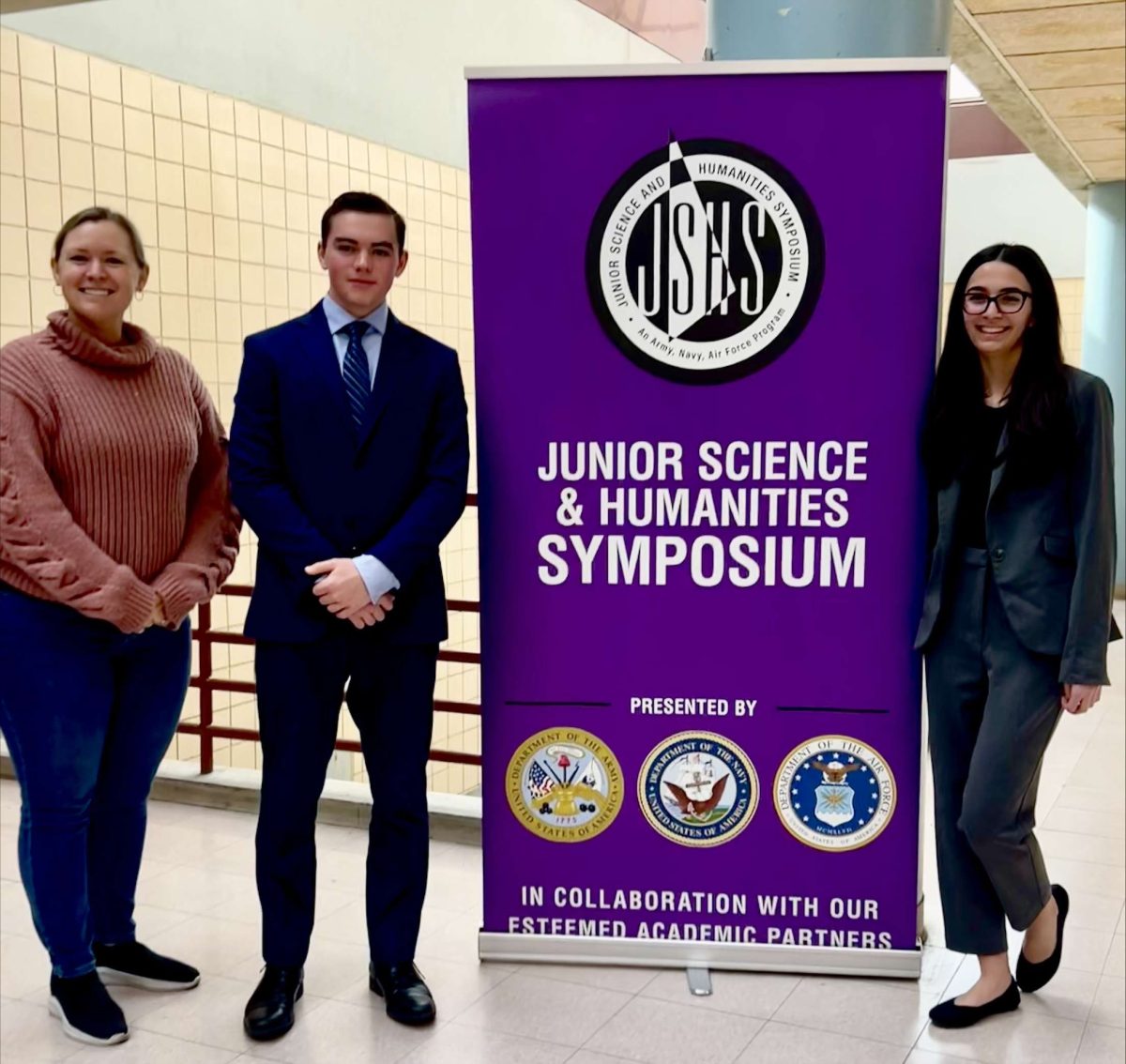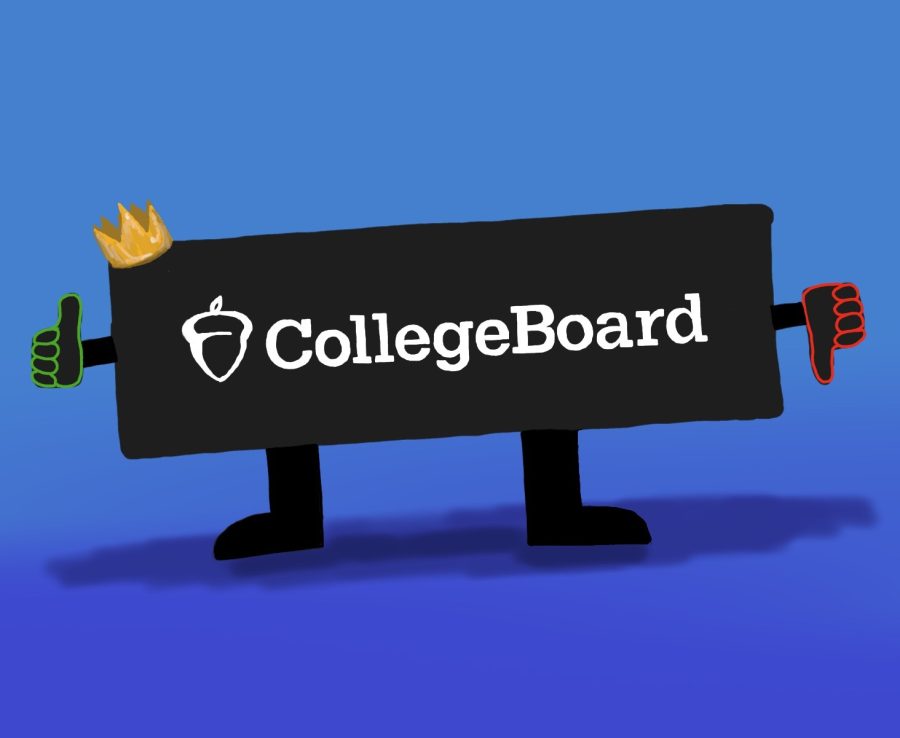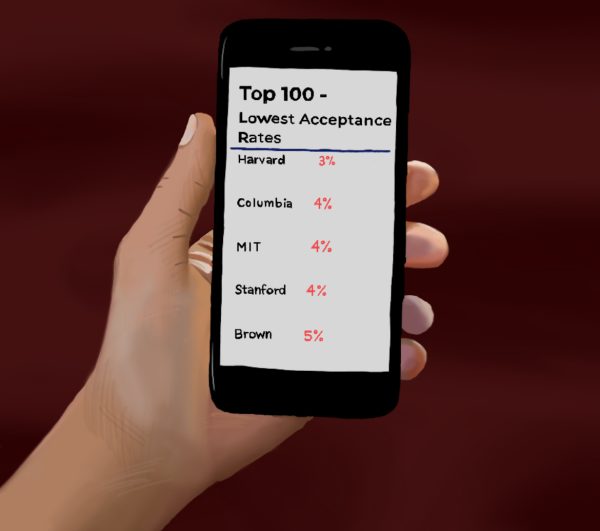College Board: The Monopoly of Education
Picture this. It is junior year, and a student is faced with the infamous milestone shared by virtually every high schooler before her: taking the SAT. The pressure on this student is exceptionally high—she, after all, wants to get into prestigious schools just like everyone else. To her, cinching that 1400+ score is the golden ticket. If it means anything at all, she questions. Does the SAT really test what I’ve learned? She spends hundreds of her hard-earned money on prep books and prep classes in addition to the $55 she needs to pay to take the test in the first place. She notices how her expenses are adding up quickly, but then she realizes the four AP exams she is taking. It is $96 for each AP. That can’t be right, she thinks. The student wonders how much she will spend preparing for those tests and worries about having any money left for herself.
Astronomical prices for College Board’s tests and test prep have long plagued students and have been called out for favoring the affluent. Students who can afford to take the tests in the first place have leverage; for example, those who can bear the costs of AP exams can earn college credit, allowing them to pay for less college classes down the line. Those who take the tests multiple times also have significant advantages over students who cannot. The option to SuperScore, to combine the largest reading/writing and math scores, has made this economic gap more apparent–the more times a student takes the SAT, the greater the chance she can improve her score. Even test prep courses for taking these tests are expensive and can influence scores immensely. According to PrepScholar (prepscholar.com), one-on-one SAT tutoring costs $40-$200 per hour, and in-person prep courses range from $800-$1,800 per course. Six to eight hours of this costly SAT prep can result in an average score increase of 90 points; 20 hours can lead to an average increase of 115 points, as stated by College Board.
With all this talk of costly tests, one may wonder, Where does this money go, anyway? Well, where College Board spends its enormous annual revenue is quite secretive, as the company makes it incredibly difficult for the public to look into its more than $1 billion in investments, Forbes (forbes.com) reported according to the last publicly released tax return. However, it does release its salaries for the highest ranking members of the company: CEO David Coleman makes about $1.5 million annually, followed by COO Jeremy Singer and CIO Theresa Shaw earning $864,661 and $529,021, respectively, according to ProPublica (propublica.org). Despite College Board releasing these numbers, its large-scale lack of transparency towards the public and grossly high executive salaries contradict its status as a 501(c)(3) non-profit. 501(c)(3) nonprofits are defined by the Foundation Group (501c3.org) as “a nonprofit organization that has been recognized by the IRS as being tax-exempt by virtue of its charitable programs.” This means that the College Board receives federal tax exemption (despite its staggering revenue) and indirect money from federal grants that help schools cover AP exams costs, which go back to the College Board, according to ProPublica (propublica.org). Also, the College Board does not offer financial support, nor does it do public good for AP students during the school year, which is expected of nonprofits.
In addition to the outrage over the College Board’s exams, one must question the legitimacy and purpose of the tests in the first place. While these tests state they assess students’ understanding of high school material, many students will be quick to point out that the exams are very linear in testing the way they learn. Across the world, all children learn differently, thus leading to them understanding content differently. The College Board’s tests are the antithesis of this, only concerned with a limited scope of students’ abilities to comprehend material. Also, the stringent, timed nature of the tests presents the College Board’s focus more on time management skills than of actual cognizance, leading to many otherwise highly intelligent and able students to falter because they were not offered more time.
The College Board is a morally bankrupt, cash-obsessed institution that fails to meet its commitment to “connect students to college success and opportunity.” However, there are luckily signs of the tide turning in the future, with an increasing number of colleges going test-optional and the SAT becoming fully digital in 2024, foretelling the long-awaited decline of the College Board and its influence.

Hey you! Thanks for checking out my profile. I am a member of the Class of 2024 and a storyteller at heart. I love to spend time with my family and friends,...


